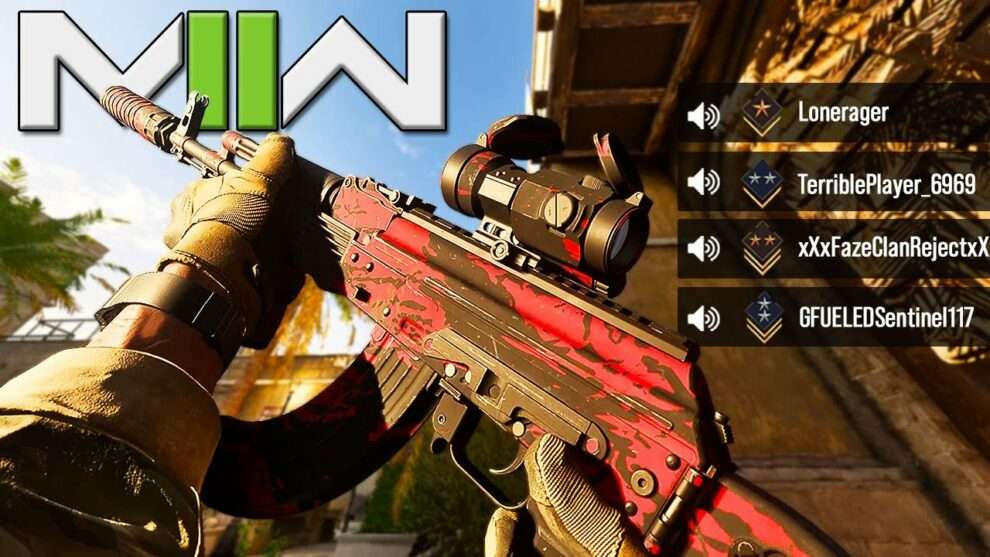Call of Duty has long been a haven for competitive gamers, offering thrilling battles and strategic depth. However, like any online multiplayer game, toxicity can rear its ugly head, casting a shadow over the joy of gameplay. Toxic lobbies—where insults, disrespect, and negativity run rampant—can ruin the experience for even the most seasoned players. In this article, we’ll explore the three most toxic Call of Duty lobbies, analyze their behaviors, and provide practical tips on how to handle them gracefully.
The Toxic Trinity: Identifying the Problematic Lobbies
1. The Chronic Cheaters
Cheaters have plagued Call of Duty since its inception, exploiting glitches, hacks, and unfair advantages to dominate matches. These players often exhibit a sense of entitlement, dismissing feedback or warnings from teammates and moderators alike. Their actions not only disrupt the flow of the game but also create an uneven playing field that frustrates honest players.
Cheaters tend to thrive in environments where oversight is minimal, often hiding behind anonymous usernames or using third-party tools to mask their identities. Their behavior can escalate quickly, with some resorting to harassment or even real-world threats when confronted. The anonymity provided by online gaming emboldens these individuals, making them particularly difficult to deal with.

2. The Constant Criticizers
Not all toxic players cheat; some simply criticize relentlessly. These individuals often focus their ire on teammates, nitpicking every move and blaming losses on perceived incompetence. Their constant barrage of negativity creates a toxic atmosphere, eroding morale and dampening the spirit of teamwork.
Critics thrive in lobbies where communication is poor or where players lack confidence. They exploit vulnerabilities, feeding on insecurities and exacerbating frustrations. While their behavior may seem harmless, it can have lasting effects on players’ mental health and willingness to engage in future matches.
3. The Flamethrowers
Flamethrowers take toxicity to the next level, unleashing torrents of verbal abuse and personal attacks. These players often lash out in anger, targeting individuals or groups with derogatory comments, racial slurs, or homophobic remarks. Their behavior is not only hurtful but also illegal in many jurisdictions, yet they persist due to the anonymity afforded by online gaming.
Flamethrowers feed on chaos, relishing the opportunity to provoke reactions. Their tactics range from subtle digs to full-blown rants, leaving victims feeling disrespected and demoralized. The worst offenders may even escalate their attacks beyond the game, pursuing victims on social media or engaging in real-world harassment.

Handling the Toxic Trinity: Strategies for Survival
While dealing with toxic lobbies can be challenging, there are strategies to mitigate their impact and preserve your gaming experience. Here’s how to handle each type of toxic player effectively:
1. Dealing with Cheaters
Cheaters can be dealt with through reporting mechanisms and vigilance. Most Call of Duty games offer robust reporting tools that allow players to flag suspicious behavior. When encountering a suspected cheater, take screenshots or record gameplay footage to provide evidence when submitting a report. Avoid confronting the cheater directly, as this can escalate the situation.
Additionally, consider joining communities or forums dedicated to reporting cheats. These groups often collaborate to compile evidence and submit bulk reports to developers. By working together, players can collectively pressure publishers to address cheating more aggressively.
2. Managing Criticism
Criticism is harder to ignore than outright hostility, but it’s equally damaging. To handle constant criticism, focus on internalizing feedback constructively. If a teammate points out a mistake, assess whether it’s valid and use it as an opportunity to improve. Constructive criticism can be a valuable learning tool if approached correctly.
If criticism becomes overwhelming, mute or block the offending player. Most games allow you to silence specific users, preventing their messages from appearing in your chat. This simple step can dramatically reduce the negative impact of toxic players. Additionally, consider joining teams or clans where communication is positive and supportive, creating a buffer against harsh criticism.
3. Defusing Flamethrowers
Flamethrowers pose the greatest challenge due to their aggressive nature. The best defense is to remain calm and avoid escalating the situation. Do not respond to insults or engage in arguments, as this only fuels their fire. Instead, focus on maintaining your composure and continuing to play your best.
Report flamethrowers immediately to moderators or developers. Many games have dedicated teams to address harassment, and swift action can prevent further incidents. If the situation becomes unbearable, consider taking a break from the game entirely. Your mental well-being is more important than any single match.
Building a Positive Environment: Community Responsibility
Toxicity in Call of Duty lobbies is not solely the responsibility of individual players. Developers, moderators, and the broader community all play a role in fostering a healthier gaming environment. Here are some proactive steps everyone can take:
- Developers : Implement stricter anti-cheat measures and enforce stricter penalties for harassment. Regular updates to the game’s reporting system can help players feel more empowered to address toxic behavior.
- Moderators : Enforce community guidelines rigorously, banning repeat offenders and educating players about acceptable behavior. Moderators should also communicate transparently about their actions to maintain trust with the community.
- Community Members : Lead by example, promoting positivity and inclusivity in public chats. Encourage teammates to report toxic players and support initiatives that aim to reduce toxicity. Small acts of kindness, such as congratulating teammates on good plays, can go a long way in creating a more welcoming environment.
A Cleaner Battlefield
Toxic lobbies can tarnish the Call of Duty experience, but they don’t have to dictate your gameplay. By understanding the types of toxic players and employing effective strategies, you can minimize their impact and focus on what truly matters—enjoying the game. Whether you’re facing cheaters, critics, or flamethrowers, remember that you have the power to control your response and protect your mental well-being.
The Call of Duty community thrives when players work together to create a safe and enjoyable environment. By reporting toxic behavior, supporting positive initiatives, and fostering a spirit of camaraderie, we can collectively elevate the gaming experience for everyone. So, the next time you encounter a toxic lobby, take a deep breath, stay calm, and remember that you’re not alone in this fight. Together, we can turn the battlefield into a cleaner, more respectful space.
The Top 3 Most Toxic COD Lobbies are formidable foes, but armed with knowledge and resilience, you can emerge victorious. Call of Duty is meant to be fun, and with a little effort, it can remain that way for all players.
















Add Comment